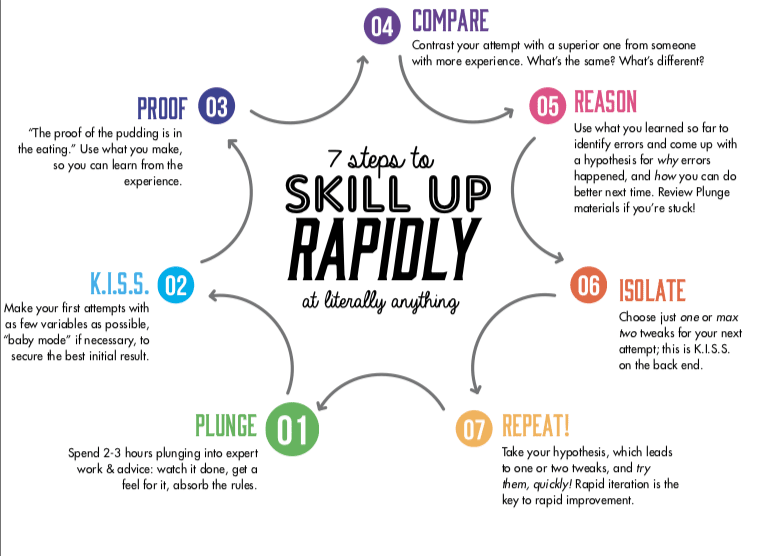Between continued tech layoffs and a lot of ugly (borderline pathological?) hiring conditions, you might be thinking that now is the worst possible time to start a business. Maybe even straight up irresponsible.
Or is it?
When the 2000s dotcom crash happened, I was young, Extremely Online, and self employed. I paid rapt attention to the fallout, hungrily analyzing and learning from all the details I could find.
And then, I used what I learned to launch three businesses – yes three – during the initial crush of the Great Recession of 2008/09.
The kinds of businesses I started – and exactly how I started them – will be very relevant to you and your future.
Because more than 15 years later, while many of my contemporaries have come and gone, I’m proud to still be in business!
Through multiple major life changes, a freakin' pandemic, and my chronic health issues, I'm still here. Making my living with my products.
(Sadly, you can't say the same for a lot of people who teach entrepreneurship. I preach what I practice.)
Here's the cold hard truth:
If you understand the conditions we're living through, and how this recession compares to recent economic history; and most of all, if you are smart about the ways you invest your time into building products that people want, 2025 might be one of the best times to start a business!
I’m not blowing sunshine up your ass. It all comes down to three key factors that are true in basically every kind of economic uncertainty:
Factor #1: The weak, bloated businesses die first
I am not an economist. I just read what a lot of experts say.
And there’s a whoooooooole lotta data and theory on what happens in times like these.
There's really only a few things that everyone agrees on, and one of them is that economic pressure kills the walking dead.
And boy, are we living through it today!
Businesses that are “inefficient” — over-extended, over-staffed, over-complicated, over-priced and under-capitalized — they die first. If you spend like there’s no tomorrow, there will eventually be no tomorrow!
Look no further than the widespread tech layoffs of the last couple of years, which broadly fall into two buckets:
- Bucket 1 are the companies who are legitimately in a financial crush, at least in part due to over-hiring during years of unsustainable growth.
- Bucket 2 are the companies that are still doing okay financially, but their stakeholders are spooked and want to see some moves towards efficiency. So they use the air cover of “tough times” to make cuts. Fuck that, I say.
At any rate, inefficient firms can and do survive, but they do so by tightening their belts. They reduce staff, close offices, change prices, kill products, and make other short-term changes to make ends meet.
And when people lose their jobs, they have less money to spend, which causes other inefficient firms to cut or die… and so on.
This cascade hurts a lot of people, but it also creates opportunity for you because of Factor #2….
Factor #2: Core needs remain (even under pressure)
Life goes on. People still have needs and wants.
And critically for your future success, everyone from professionals to solopreneurs to enterprises has non-negotiable needs:
- They need to protect and grow their income
- They need to stay competitive and relevant
- They need to deliver more value more efficiently
- They need to reduce risks and uncertainty
- They need to maximize every resource they have
Yes, they may have less money to throw around. They’re scrutinizing every expense. But the money doesn’t just “vanish” - it gets reallocated to what actually works.
Economic pressure turns everyone into maximizers. They’re looking to:
- Invest in skills that make them irreplaceable
- Cut tools and subscriptions that don’t deliver clear ROI
- Replace expensive solutions with simpler, focused alternatives
- Learn ways to do more with less time and fewer resources
- Build security through better skills, systems, and results
And for the aspiring entrepreneur like you 👆 this is your chance to shine. These pain points aren’t going away - they’re getting sharper.
Which leads to the final fact about what happens during times of economic pressure…
Factor #3: Pressure creates gaps in the market
Have you stopped to consider that some kinds of businesses actually grow during economic shakeups? It’s true!
Even when money is tight, regular folks spend on affordable luxuries like fancy soap, chocolates, and movie tickets.
Sometimes they even spend more than before, because it’s a way to cut spending elsewhere: e.g. instead of going to a spa, they buy fancy soap to use at home. Instead of spending gas on commuting to work, they buy things to make their home office more comfortable.
Folks also invest in things that will improve their economic situation, or lower their financial risks. They might stock up on stuff that they can get cheaper in bulks. Or pay for training that helps them get a better job, so they can earn more and save more money.
The same is true for businesses.
No matter the climate, businesses and professionals alike will keep buying things that reliably promise to:
- save them money
- make them more money
Good investments can include reaching more customers, keeping more customers, training and retaining valuable staff, earning more per sale or customer, getting more done with the same number of hours or people, etc.
Smart savings can come in the form of buying cheaper, more effective, or more durable alternatives to the things they already spend money on.
They cut waste, and maximize what they can squirrel away.
And even if a business is healthy, they’re not immune to a supplier going out of business or shutting down a critical product.
Do you hear that? It’s opportunity knocking for you.
So what have we learned?
-
Economic pressure comes down hardest on the businesses that have been running bloated, risky, and fragile…
-
…but even when spending slows, it doesn’t stop…
-
which creates unique advantages for NEW businesses, if you understand how to make the right moves.
These three factors sum up what I understood about recessions and entrepreneurship when I started my businesses during the 2008 crisis, and why I still believe entrepreneurship is a smart choice in 2025.

There's more where that came from
We email every Wednesday with the latest insights from our business, our students, and our research. Drop your email in the box below and we'll send new stuff straight to your inbox!
Absolutely no spam, ever. We respect your email privacy. Unsubscribe anytime. Huzzah!

